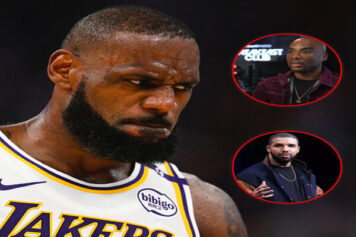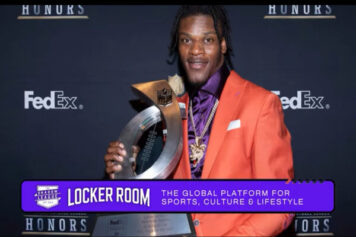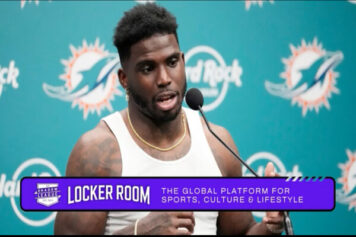Former Negro Leagues star and baseball ambassador Buck O’Neil left an incomparable legacy that continues to impact the diversity of the game. He was a Presidential Medal of Freedom winner who was connected to the evolution of the sport at its roots.
Since 1999, the Buck O’Neil Professional Baseball Scouts & Coaches Association has celebrated Buck’s persistent and inclusive spirit, by providing an atmosphere for coaches and scouts across baseball to connect through networking, mentorship, and professional development.
It’s a privilege to be a member of “The Buck” looking forward to an amazing weekend in The Big Apple! https://t.co/S5rVf3OByP
— Del Matthews (@DelMMatthews) November 7, 2019
On Friday, the association will hear from a series of speakers at the head of the organization, including deputy commissioner of baseball administration Dan Halem, deputy commissioner of business and media Tony Petitti and executive vice president of baseball and softball development Tony Reagins.
If you’re a coach or baseball person with a decent resume and a desire to move into the world of professional scouting, then there’s no place on earth you’d rather be.
With a membership of close to 200 people, the association holds a conference every year in various locations in order to fulfill its mission as well as to reaffirm its goals.
These include supporting the Negro Leagues Baseball Museum in Kansas City, founded in part by namesake Buck O’Neil; promoting baseball in the inner cities by teaching coaches and guiding players through annual clinics; awarding scholarships to high-achieving students who are interested in pursuing careers in baseball; and educating the association’s members as they navigate their own careers in the industry.
Previous conferences have been held in Los Angeles, Dallas, Atlanta and Kansas City (Home of the Negro Leagues Museum). around the country
This weekend, ahead of its 20th anniversary, the association will hold its annual conference in New York City, as Commissioner Rob Manfred invited them to visit the Office of the Commissioner.
It falls in line with MLB’s overall commitment to diversity and inclusion from the grassroots level on up into the league offices.
O’Neil is the co-founder of the Negro League Baseball Museum and became MLB’s first black coach in 1962 with the Cubs. O’Neil had played and managed in the Negro American League, leading the Kansas City Monarchs from 1948-55. He won two league titles in ’53 and ’55 and shared a title one season.
The impact of Jackie Robinson’s arrival in 1947 had a ripple effect throughout baseball and Cubs general manager Wid Matthews hired O’Neil as a scout after the Monarchs’ season ended in 1955, with an assignment to search the predominantly black high schools and colleges for talent.
As baseball continues to be a leading professional sports corporation when it comes to diversity within its hiring practices and business philosophy, the conference will provide the members with an opportunity to learn more about the inner workings of MLB’s operation and to interact with influential people higher up the company ladder.
“Some aspire to be general managers, some aspire to be coaches at the Major League level, at the Minor League level. Being here is a pay-it-forward type atmosphere.” Reagins told mlb.com. “[Halem and Petitti] are leaders in our industry, so they’ll have a chance to ask questions and hear feedback as to the thinking of Major League Baseball. It’s a great opportunity to bounce ideas off one another and try to implement some of the suggestions and insight that this group brings to the table.”
Danny Montgomery, the vice president of the association and a special assistant to the GM for the Colorado Rockies, called it an “unprecedented” occasion, with an expected record attendance of over 100 members.
The agenda will also include small group exercises designed for leadership building, a panel discussion on career development and a group discussion on scouting strategies.
Steve Williams, president of the association and a director of professional scouting for the Pittsburgh Pirates, said that these conversations are crucial for its younger and older members alike as they work together to keep pace in an unpredictable and ever-evolving industry.
It’s also important to educate scouts on balancing etiquette, analytics, and overall scouting approach.
“There’s a lot of scout development that needs to be discussed and talked about that sometimes these guys may not get from their own organizations,” Williams said. “[We] continue to develop everyone as a whole so they can stay within the business setting, so they don’t get left behind. We develop our guys to have them on the cutting edge as much as possible … It’s a lot of information in a short period of time, but a lot of good things come out of it.”
In any business, you have to hear from your constituents — those people who are on the ground, who know what the industry is like from where they sit. MLB gets that.
The conference is another example of the league being committed to the benefits of diversity and inclusion by equipping coaches and scouts with cutting edge knowledge and a unique opportunity to expand their horizons.
MLB’s willingness to share knowledge and listen to ideas from members of the association allows for the sport’s continued development, popularity, and overall sustainability here in the United States.



